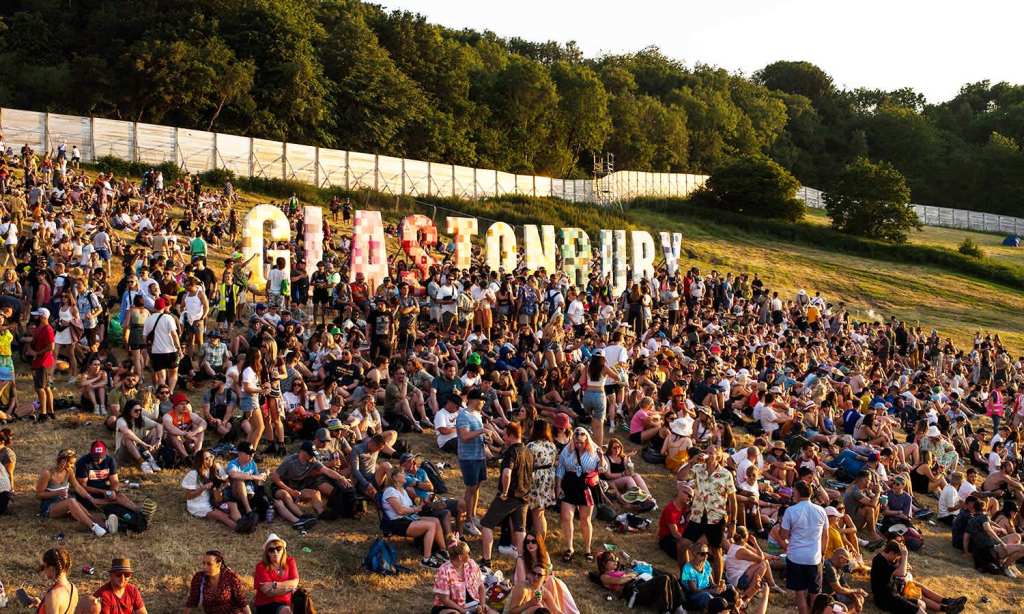I didn’t think that it would be Phoebe Bridgers standing in a circus tent in a field in middle-of-nowhere England, who would tell me that the US Supreme Court had overturned Roe V Wade, ending abortion access as a constitutional right in America.
“I’m having a really bad day, guys,” Bridgers told the crowd. “Can we all just shout ‘f**k the Supreme Court,’ right now?” The crowd, several thousand at least, obliged with a roar.
“What’s she talking about?” my partner turned to me and asked. I wasn’t sure. Then my stomach sank. “Oh my god, I think they’ve overturned Roe.” We both cried.
Bridgers, who has been open about an abortion she had last year, let rip on the “irrelevant old motherf**kers trying to tell us what to do with our fucking bodies” before a punishing rendition of ‘I Know the End’ where she finished with a primal howl and a wall of guitar reverberation.
Glastonbury Festival, one of the biggest and oldest performing arts festival in the world, has something for everyone. If you want world-class DJs in tiny temporary clubs at 6am, you can have that. If you want bizarre circus acts and outrageous burlesque at midnight, you can have that. If you want to do yoga to 80s power ballads overlooking the green fields at 10am, you can have that.
However, the festival has never been shy about its politics. It centres on the fact that music and revelry are, at their core, acts of rebellion. Long tied to the Campaign for Nuclear Disarmament, the site is absolutely covered in anarchic slogans and painted prayers for a better, more unified and sustainable world. Greta Thunberg even made a surprise appearance at the iconic Pyramid Stage this year.
When the 200,000-strong crowd of people flock here from all corners of the globe, they come to escape, to indulge, and to experience a parallel world where peace, love, unity, and respect are foundational principles. It’s temporary, of course, and the actual impact of catering for all these attendees has impacts contrary to the aims of the festival, but the trade-off being made here is the ideological shift in the punters.
Micheal Eavis founded the festival in 1970, picking up the dying embers of the spirit of the 60s, and has since built them into an annual bonfire of hope. Each year over £2 million pounds is raised for over 500 different charities while the ‘Free University of Glastonbury’ holds talks and speeches on radical politics. Yes, it’s a big debaucherous party in a field, but it’s also carefully curated to encourage people towards optimism and political change once they leave the site. Alternatives are out there, Glastonbury is the proof.
While the festival is not without its issues — the overwhelmingly white attendees being one — at least it’s trying. More than a few of us have felt like giving up over the past few years as the relentless firehose of terrible news rains down upon us. People need to dance, they need to sing, and they need to be surrounded by like-minded souls all trying to shake off the horrors of the past and present. The flags carried by attendees bearing the names and photos of loved ones lost during the pandemic are reminder enough of just how much this means to people.
Although this probably sounds very woolly, it’s evident that the ideal at least is valuable. None other than Ukrainian President Volodymyr Zelenskyy made an appearance, via recorded video message, at the opening of the festival, to praise this very concept.
“Glastonbury is the greatest concentration of freedom these days,” he told the crowd. “I ask you to share this feeling with everyone whose freedom is under attack.”
And now, here’s The Libertines.
While it might not be totally coherent, the site is certainly a place for rejuvenation, recharge, and new perspectives. As the sun rises over the festival on Monday morning, it won’t necessarily see the dawn of a new era of enlightenment. But if even a small fraction of the vast population who make up what temporarily becomes the UK’s 32nd largest city return to their normal working lives inspired to create and be the change they want to see in the world, that’s worth it.
Although it’s hard to sum up or convey the significance of Glastonbury, surely this is at least a part of it.
Read more stories from The Latch and subscribe to our email newsletter.

